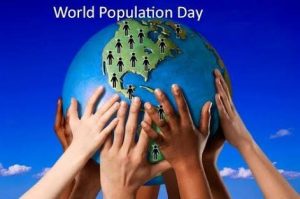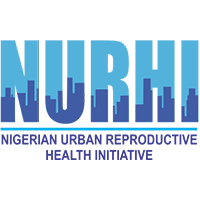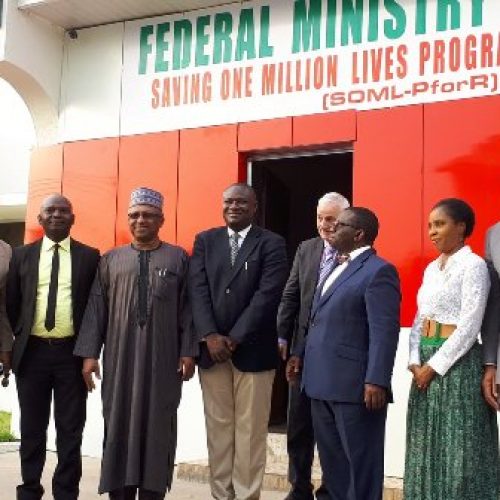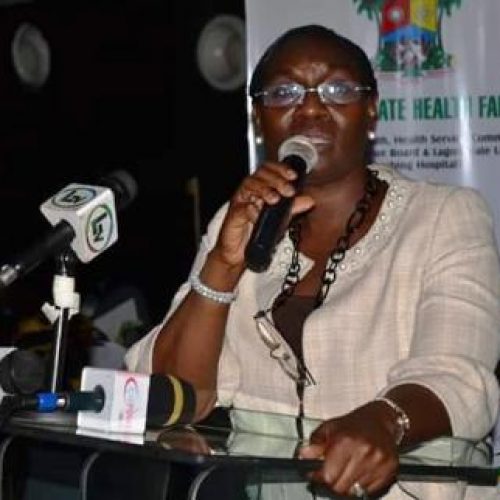World Population Day shifts attention to Family Planning
● Health Minister restates commitment to quality FP service delivery at all levels of health care
● NURHI calls for more funding of services

Issues of family planning and improved quality of life took the centre stage yesterday as the world marked the 2017 World Population Day with the theme: ‘Family Planning, empowering people, developing nations.’
In Nigeria, the Minister of Health, Prof. Isaac Adewole in a broadcast said the theme for this year’s celebration “speaks to the core of our humanity and touches on human right, economy, social development and general well being.”
The minister applauded all partners working with the country “to eliminate barriers to accessing modern Family planning and improving quality of life of our people.
“At the Federal Ministry of Health, we are committed to the execution and implementation of our commitments to the delivery of quality Family Planning services at all levels of health care.
“As we celebrate the World Population Day, let us keep in mind the lessons of this event as we strive to close the gap of unmet needs of Family planning in order to reduce unplanned pregnancies, unsafe abortion and promoting the health and well being of our people in a way that bring demographic dividends far ahead of other countries in Africa and the world,” the minister said.
Also commemorating the event in Nigeria, the Nigerian Urban Reproductive Health Initiative 2 (NURHI 2) called for more funding of family planning services in the country.
In a statement to mark the day, NURHI said: “Investing in family planning is investing in the health and rights of women and couples worldwide. Investing in family planning is the right and very positive thing to do. Nigeria has a rapidly growing population with a large pool of young people.
“When the size of the dependent population shrinks relative to the size of those of working age, it creates an economic advantage. From the combination of increased wage earners, decreased dependency and implementation of the right policies we can fuel major economic growth.”
According to NURHI, meeting the demand for modern contraceptives for all six million women in Nigeria would cost, only, $11 per contraceptive user for a whole year of supplies and services.
“If adequate funding is provided for the health sector, investment in family planning could consequently receive a boost. In this regard if married women who desire family planning would have their needs met, Nigeria’s modern contraceptive prevalence rate would rise from the current 10 percent to the stipulated national target of 36 percent by 2018.”
The NGO said this year’s World Population Day theme is so apt as it emphasises issues on Family Planning as a key strategy to economic growth and sustainable development which it champions.
“This therefore means that when accesses to quality family planning services are provided as a right, it empowers couples, women and individuals to space the births of their children and to achieve their desired family size in a sustainable way.
“Family planning and/or child spacing is therefore a voluntary informed personal decision but its profound implications on health, economic and social well being of the society are far reaching. That is why simple individual rights and choices have become a developmental agenda that must be addressed and integrated on sustainable basis into national, state and local development agenda.

“As the theme of the 2017 World Population Day suggests, family planning/child spacing is not only about saving lives of mothers and their children; it’s also about empowering the people, improving the quality of their lives and achieving sustainable development,” the statement reads.
Speaking at a press conference in Abuja, the chairman, National Population Commission, Chief Eze Duruiheoma, said: “As you all may be aware, family planning and birth spacing are measures to attain a sustainable family size by way of allowing for adequate intervals between births, employing especially the use of contraception.
He acknowledged the benefits of family planning and child spacing, saying: “Family planning and child spacing are personal decisions but their profound implications on the health, economic and social well being of the society are far reaching.
“That is why simple individual choices have become a development agenda that must be addressed on a sustainable basis. As the theme of 2017 WPD shows family planning is not only about saving lives but also empowering people and developing nations,” Duruiheoma said.
According to the UNFPA and the 2013 National Demography and Health Survey report, Nigeria has continued to report very high maternal deaths arising from complications of pregnancies and child birth.
Currently, 576 women per 100,000 lives birth die every year from complications of pregnancy and childbirth. This figure translates to 111 women dying daily.
Evidence also shows that more than 16 percent of women who seek to use family planning services fail to gain access to such services that would have enabled them space or limit their pregnancies. So a large proportion of Nigerian women as a result face high risk pregnancies and child births and NURHI has noted that these situations demand urgent attention.
Research studies have also shown that successful family planning programmes contribute to 33 percent reduction of maternal mortality. Consequently, meeting the unmet need for family planning can help Nigeria reduce maternal mortality, and also child mortality by 20 percent.
In addition, giving women the right to access the voluntary family planning services will go a long way in fulfilling unmet need for Family Planning and consequently save more lives.
Meanwhile, on 25 September 2015, Nigeria was among the 193 member states of the United Nations to unanimously adopt the 2030 Agenda for the 17 Sustainable Development Goals that aim to transform the world. These Goals are designed to eliminate poverty, discrimination, abuse and preventable deaths, address environmental destruction, and usher in an era of development for all people everywhere. Family Planning is included in the SDGs as Target 3.7 to achieve universal access to sexual and reproductive health services.
Achieving the world’s Sustainable Development Goals by 2030 will depend significantly on how well the sexual and reproductive health and rights of women and young people are fulfilled. Catering to their unmet need for family planning is among the most cost-effective investments, Nigeria must make now and in the future overall.
Emphasising the benefits of family planning, NURHI pointed out that women who choose family planning are healthier and face lower risks of maternal death.
“Children born to women who space their pregnancies tend to be healthier and face less risk of death in the first five years of live. Women with choices and greater reproductive health are better empowered to seek and keep better jobs and contribute more to their families’ and nation’s prosperity.
“Their families are better-off financially and their children receive better education, helping trigger a cycle of prosperity that carries well into future generations. This produces demographic dividends and enhances global prosperity.
“Voluntary family planning as a human right is central towards poverty reduction; it’s indeed central to gender equality and cannot be easily wished away. Family Planning as a life saving intervention is not only crucial in normal situations, it is also critical during humanitarian crises which are often characterized by sexual violence, intimate-partner violence, child marriage and high risk behaviours such as survival, transactional and commercial sex.
“Universal access to modern family methods is therefore imperative for all women of reproductive age. Yet, over six million women who want to avoid pregnancy are currently not using safe and effective family planning methods.”
About author
You might also like
South African musician plays guitar during brain surgery
Musa Manzini plays the guitar during brain tumour surgery South African jazz artist Musa Manzini strummed his guitar while surgeons removed tumour from his brain, according to a video of
Health minister inaugurates verification agent for SOMLPforR
The Minister of Health Prof. Issac Adewole yesterday in Abuja inaugurated the Verification Agent (IVA) for the $500m ‘Saving One Million Lives Programme For Results,’ (SOMLPforR), the World Bank’s International Development
Lagos trains 825 health workers on attitudinal change
• Perm Sec urges workers to embrace professional core values A cross section of health workers at one of the training sessions In its bid to foster qualitative health care







0 Comments
No Comments Yet!
You can be first to comment this post!